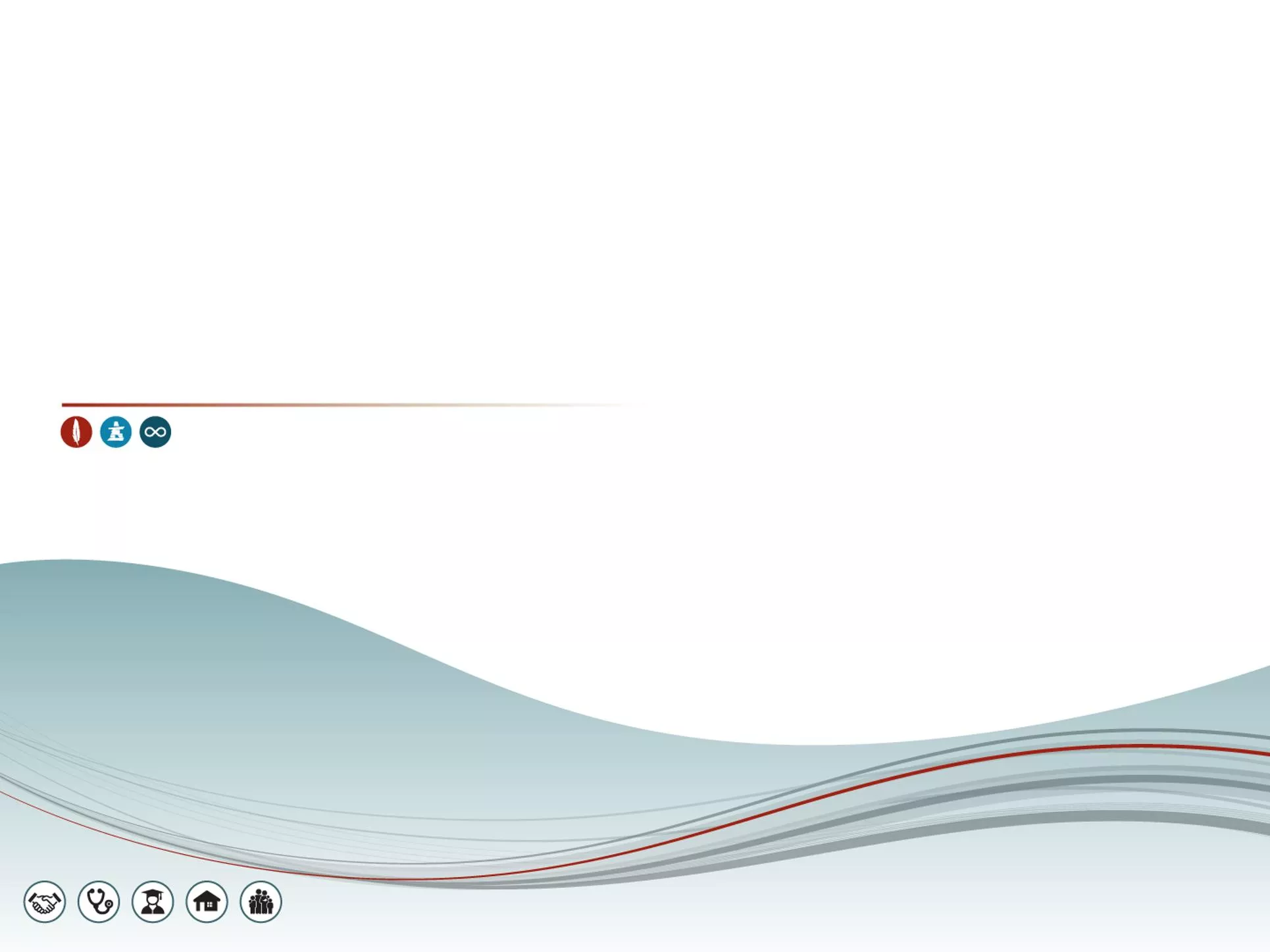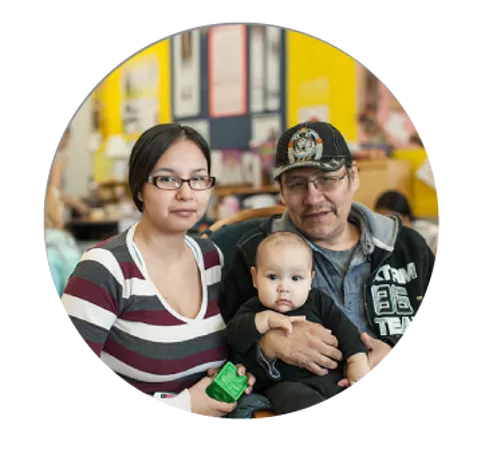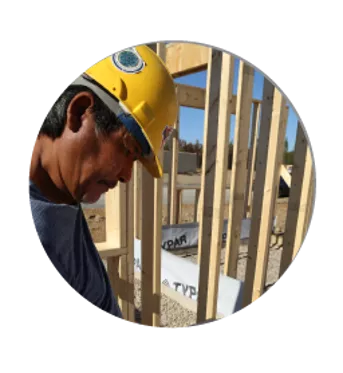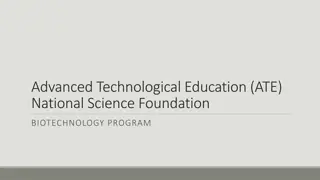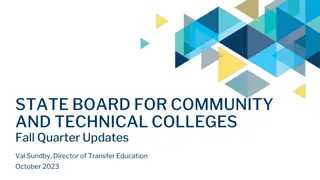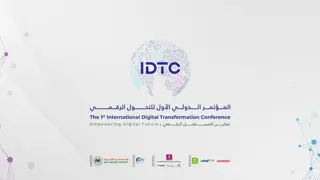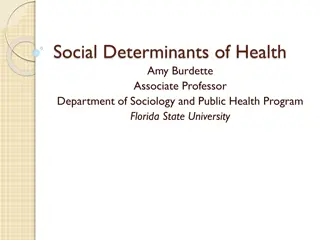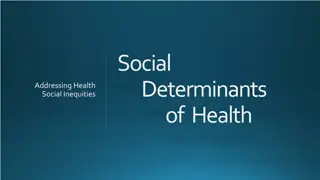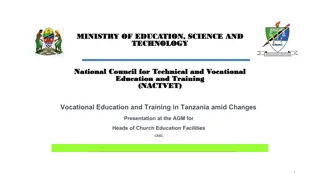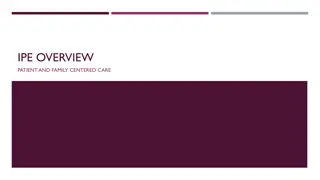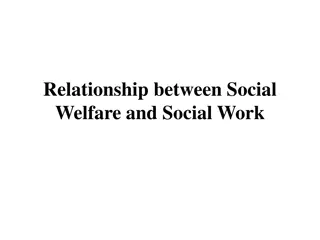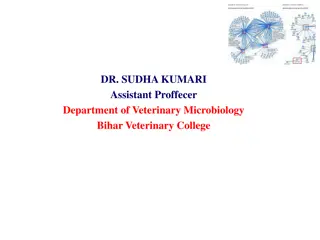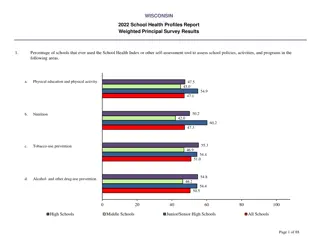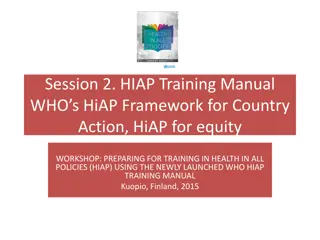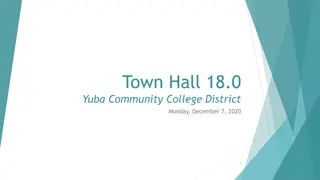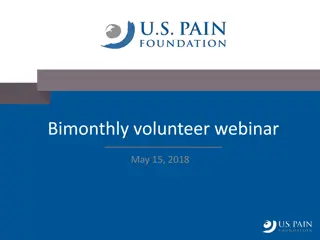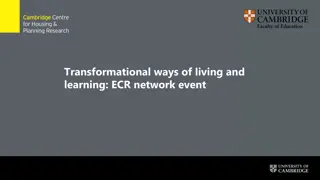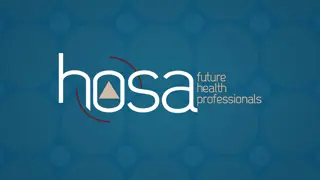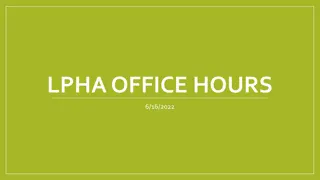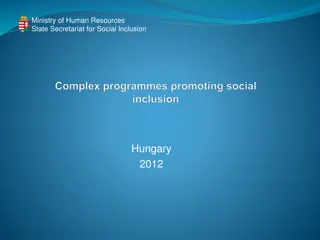Updates on Education, Health, and Social Programs Transformation Initiatives
Presentation highlights ongoing transformation initiatives in education, social, and health programs for 2018-2019. Focus includes child and family services policy reforms, prevention-based approaches, and fostering relationships for First Nation youth support. Updates on key joint projects, funding commitments, and collaborative efforts are discussed to better serve communities.
Download Presentation

Please find below an Image/Link to download the presentation.
The content on the website is provided AS IS for your information and personal use only. It may not be sold, licensed, or shared on other websites without obtaining consent from the author. Download presentation by click this link. If you encounter any issues during the download, it is possible that the publisher has removed the file from their server.
E N D
Presentation Transcript
Education, Health and Social Programs Joint Gathering May 3-4, 2018
Opening Questions 1. Do you have any questions or points of clarifications from this morning s plenary session? 2. If you were to identify 3 issues that should be the focus of our work together going forward, what would they be? 3. What are your ideas on how we can better work together going forward, including how ISC and FNIHB could work together? 2
Education, Social and Health Programs This presentation will provide updates on: Transformation under way On-going program highlights Details on key joint education, social, and health files and projects 2018-2019 will see important transformation initiatives, including in Child and Family Services and Education 2018-2019 will also see the results of new work and relationships between Education and Social Programs and the First Nations and Inuit Health Branch, particularly in the area of supports for First Nation youth 3
Social Program Transformation Child and Family Services policy and funding reform and keeping First Nations families together is top priority Focus shift: to prevention-based approaches to community and child well-being instead of intervention-based approaches of apprehension and protection Vision: to proactively support child and family unification within communities; to maintain cultural identity; to reduce the number of children in care $12.4 million for 2018-2019 to be disbursed to First Nation communities in Ontario for community- based prevention activities (Budget 2016 immediate relief funding) Budget 2018 committed more than $1.4 billion in new funding over six years to better support the best interests and well-being of First Nations children and families In January 2018, Indigenous Services Canada held a national Emergency Meeting on First Nations, Inuit, and M tis Nation Child and Family Services with Indigenous leadership and provincial governments In April 2018, Canada, Ontario and the Ontario Political Confederacy leadership signed a joint commitment towards policy and funding reform for First Nations child and family services in Ontario 4
Social Program Highlights Child and Family Services: Ontario Special Study: Governments of Canada and Ontario are co-funding Study will identify options for a new First Nations child well-being policy and funding reforms in Ontario that are family-centred, community-directed, and support better outcomes by focusing on prevention A report is expected in June 2018 Remoteness Funding: The Department is working with Nishnawbe Aski Nation to research and develop a remoteness funding quotient for child and family service agencies who serve remote communities in northern Ontario Recommendations may also help to inform funding allocations throughout Ontario and nationally 5
Social Program Highlights February 2018 Canadian Human Rights Tribunal (CHRT) Orders: Letters were sent to 11 designated First Nations Child and Family Services Agencies in Ontario informing them that the federal government will immediately begin to cover agencies actual costs retroactively to January 26, 2016. Retroactive reimbursement will cover costs for prevention, intake, legal fees and building repairs Additionally, First Nations, Tribal Councils, and designated First Nations Child and Family Services agencies in Ontario may submit claims for reimbursement of actual costs incurred the provision of Band Representative Services since January 26, 2016 Partners in Ontario will also be reimbursed for costs related to mental health services for First Nations children and youth To date, over $3.7 million has been delivered to 14 First Nation claimants 6
Social Program Highlights Income Assistance: Modernization/transformation planning is underway to improve and align programming and services with the Ontario Provincial government Budget 2018 announced incremental funding of $447 million over five years for Indigenous Skills and Training Program Community engagement planning is underway 7
Education Transformation Elementary and Secondary Education: In December 2017, the AFN ratified a co-developed policy approach for elementary and secondary education The new approach moves from proposal-based programs into a new interim formula for 2019-2020 that provides provincially comparable base funding plus adjustments (e.g., remoteness) and enhancements (e.g., language and culture) The approach also supports new regional education agreements that provide: comprehensive funding arrangements; clear and defined roles and responsibilities among service providers; mutual accountability mechanisms with clear objectives, performance indicators and reporting expectations for both the Government of Canada and First Nations The Department is working with the First Nation Education Coordination Unit to prepare for implementation, including information sessions and technical tables starting in Summer 2018 8
Education Transformation Post-Secondary Education: Budget 2017 committed to a comprehensive review of all federal programs that support Indigenous post-secondary students The review is under way now. Based on regional input, recommendations on how to transform programming for students and institutions are expected in Summer 2018 9
Education Program Highlights Indigenous Services Canada shares the concerns of First Nations for student safety and well-being, and is committed to working with First Nations to ensure students are well-supported and have access to culturally-appropriate education and mental health supports In July 2017, Nishnawbe Aski Nation Chiefs created a Task Force to develop and implement solutions to improve student safety in Thunder Bay and other urban centres where Nishnawbe Aski Nation students attend school off reserve Indigenous Services Canada education, social and health program all participate together in the Emergency Education and student safety task force, including investment of over $4 million in addition to existing core education funding to support student safety plans in Ontario s north, particularly in Thunder Bay and Sioux Lookout While this important work will continue, organizations indicate improved student safety and well-being in the current school year as a result of projects including: student and staff training initiatives (e.g., CPR and missing persons protocol); broader availability of extracurricular student activities (e.g., and-based learning); and boarding home pilot projects 10
Education Program Highlights Anishinabek Nation Education Agreement: On August 16, 2017 Canada and the Anishinabek Nation signed a historic Education self-government agreement The foundation for transformational change for the 23 participating First Nations Canada s funding agreement with the Anishinabek Nation was successfully put in place to enable the initial self-government transfer of $29m in grant funding to the Kinoomaadziwin Education Body on April 1, 2018, contributing to the successful launch of the Anishinabek Education System 11
Health Highlights As of April 16, 2018, in Ontario, there are already 9 health facility projects underway encompassing seven First Nations and two major hospital renovations Through the recently signed Social Emergencies Relationship Agreement, Canada and Ontario are working with Mushkegowuk, Nishnawbe Aski Nation and Grand Council Treaty #3 to develop coordinated processes to ensure communities are swiftly and effectively supported in the event of a social emergency Through 2016 investments and based on direction of First Nations leadership, the federal and provincial governments have each agreed to provide $5M per year in order to support 19 mental wellness teams across Ontario this ensures that every First Nations community has access to mental wellness and crisis intervention supports when required Implementation of community-based mental wellness investments are guided by the First Nations Mental Wellness Continuum Framework (MWCF), which presents a shared vision that is based on culture as foundation and the elimination of siloed funding for the future of First Nations mental wellness programs and services 12
Mental Wellness Roll-out of 19 mental wellness teams with increased funding of $13.7, co-funded with the province, as a result of 2016 investments Budget 2017 invested an additional $14.3M over five years to further increase support for mental wellness services for First Nations; approximately $63.5M in annual mental wellness programming to support community-based projects in First Nations in Ontario Social Emergencies Relationship Agreement recently signed by all parties Implementing Jordan s Principle: Under Jordan s Principle, to date FNIHB has provided over one hundred million dollars in funding for products, services and supports for First Nations communities and individual requests Choose Life Initiative creates a concrete simplified process for communities in NAN territory to apply for mental health supports for children and youth through Jordan s Principle funding. 13
Health System Transformation This change is reflected in tripartite work in health that builds on devolution work already underway Tripartite agreements towards health transformation have been formalized with Nishnawbe Aski Nation, Grand Council Treaty #3, Anishinabek Nation and Six Nations of the Grand River Health Transformation/Devolution Initiatives in Ontario Sioux Lookout First Nations Health Authority Approaches to Community Well-being (ACW) Public Health Model KO Nursing Transformation project Deer Lake nursing transferred this year Keewaywin and North Spirit Lake in planning stages Matawa Nursing and Environmental Public Health transformation planning Fort Frances Area Tribal Health Authority nursing transfer completed Kenora Chiefs Advisory Public Health model (EHO transition planning underway) 14
Grassy Narrows and Wabaseemoong There are ongoing discussions between Grassy Narrow, Wabaseemoong and Indigenous Services Canada officials on Mercury Contamination In response, the Department has: - Established a tripartite working group to address health impacts - Funded a feasibility study for a treatment facility - Boosted services around suicide prevention and medical transportation - Taken steps towards reform of the Mercury Disability Board including a commitment to establish an expert panel 15
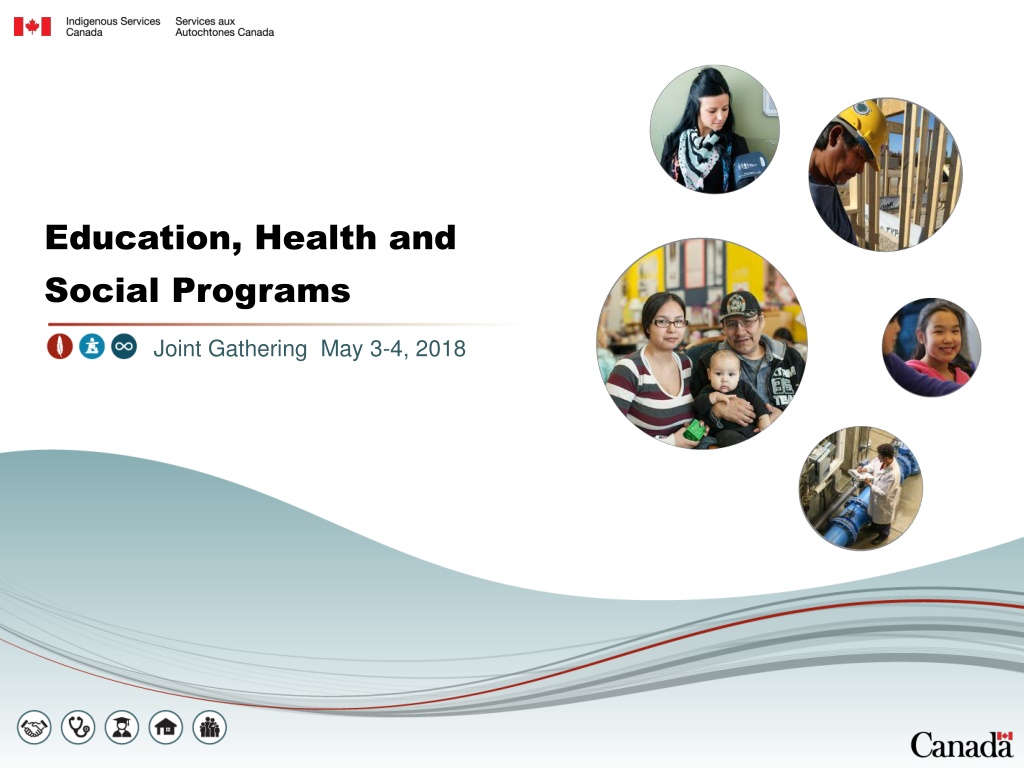
 undefined
undefined